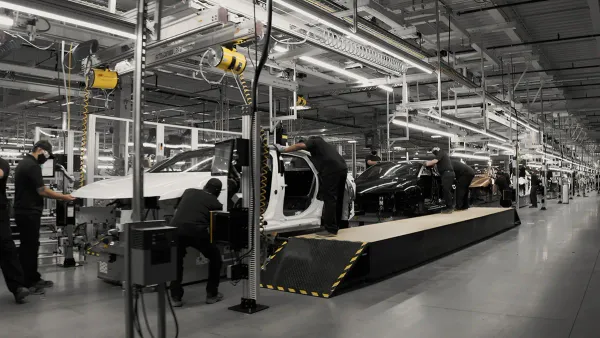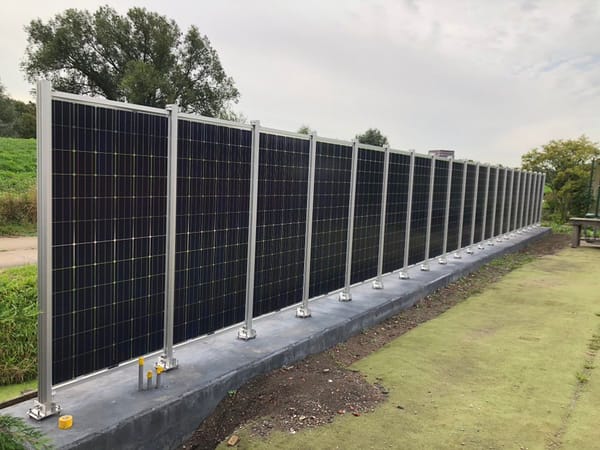Neat-o Stuff! Mines, French Nuclear, and Boiling Oceans
Elon Musk is lobbying utility companies, the French want to call nuclear "green", and the oceans are getting unexpectedly hot, real fast.
1. It’s mine: We need those minerals
As the world moves from using fossil-fuel driven engines to batteries and turbines there’s increasing need for cobalt, nickel, lithium, tin, and zinc. While those metals are spread all over the world, most identified sources and existing mines are in poorer, or extraction-based economies. Now, the United States and Europe are trying to find cleaner and domestic sources of those metals, while avoiding breaking the bank. The changes are straining the global economy, creating opportunity and havoc. For instance, 60% of the world’s lithium reserves are in Bolivia, Chile, and Argentina. Chile just nationalized its lithium mines, and the three counties are discussing creating a lithium cartel, much like OPEC. Indonesia and Australia have the biggest nickel reserves, which is forcing Indonesia to rethink what counts as environmentally “risky” mining methods and Australia has projected nickel mining to surpass its missive coal mining industry in five years.
- The new hot American job is mining engineer, attracting college students with fat six-figure salaries and $7,500 signing bonuses.
Sources: Grist / The Guardian / Washington Post / Greenbiz
2. It’s gonna be a Hot Ocean Summer
This year is already on track to be the hottest on record, as heat waves roll across Canada, Siberia, Spain, and India, setting off fears of a bigger, longer wildfire season. Oceans are also warming faster than ever before, which is amping up concerns about larger, more damaging hurricanes this summer and fall. One considered possibility: Reduced sulfur emissions from ships, as a result of new fuel regulations starting in 2020, has increased the amount of sun hitting ocean surfaces. Sulfur dioxide in the atmosphere acts as solar reflectance, cooling the regions of the earth. Never-the-less, scientists are baffled by the sudden rise in ocean temperatures and are preparing for a bigger than anticipated climate impact.
Sources: Guardian / Washington Post / Nature / Axios
3. Pray I do not alter the terms of this deal
Traditionally, electricity transmission was easy. You had a city that needed power, so you built a big gas, coal, or nuclear plant then the local utility strung up some wires to get the power there. It turns out green power generation is much more distributed. Solar and wind is spread out all over the place. You need hundreds of wind turbines or dozens of solar farms to equal one gas plant. At the same time, green energy sources in different places are active at different times. Turbines might be cranking fast in Iowa while barely moving in Minnesota, that electricity needs to be moved long distances. But because our national electricity grid has been locally or regionally managed, there aren’t enough wires built to move power long distances and state laws often give local utilities control over whether new lines can be put up.
The Biden Administration was hoping to solve this problem with a new grid infrastructure law, but that got stalled by Sen. Joe Manchin, who viewed it as an attack on coal generation, which it kind of was, since it would favor new solar and wind power projects. So, Manchin essentially killed the grid update plan as part of the debt limit negotiations. The Biden Administration got a deal for a new grid study, but critics say that’s just a retread of The National Transmission Plan, a two-and-a-half year DOE study released last March. Now, as 90% of all grid connection requests are coming from solar and wind projects, Congress is talking about reopening the deal, because the first one approved by Manchin, was so unbelievably bad.
- The deal is so bad, Elon Musk is lobbying utility companies to update the grid so future EVs can get charged.
- Manchin’s precious coal is dying anyway. So far this year, wind and solar have generated more power than coal in the U.S.
- A study found utility companies pushed $215 million into dark money political groups between 2014 and 2020.
Sources: WSJ / New York Times
4. French nuclear is the name of my new techno band
For months, the European Union has been preparing a massive tax subsidy package for green energy generation, but the European Parliament needs to approve it before any can go forward. At the last minute, France has halted the process, demanding that nuclear energy, which is carbon neutral, receive the same status as renewables. France depends on nuclear more than most – 79% of its electricity came from nuclear in 2019 – and it has allied with other nuclear-friendly EU countries like Poland and Hungary to push for the plan change. Germany, which this year finally shut down what was once one of Europe’s biggest complex of nuclear power plants, has been particularly irked by France’s demands. But it seems the EU President, which is held on a rotating basis, this year by Sweden, is proposing a compromise deal where nuclear can be categorized as green, but French ammonia production (used for fertilizer) was been transitioned from running on fossil fuels to green hydrogen.
Sources: Politico / Bloomberg / Reuters
Other Things Happened
- An overview of Republican presidential candidate views on climate change.
- A new report finds country-level climate plans for net zero usually aren’t credible.
- The congressman from the Quad Cities (in Iowa and Illinois) is a former TV meteorologist who likes to talk about climate change.
Welcome to the bottom of the newsletter! Here’s a mind-blowing video about quasars.





